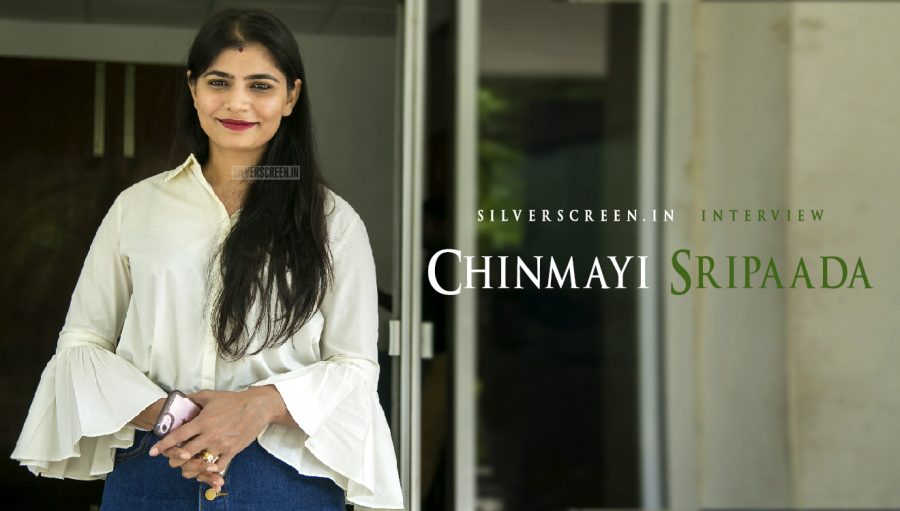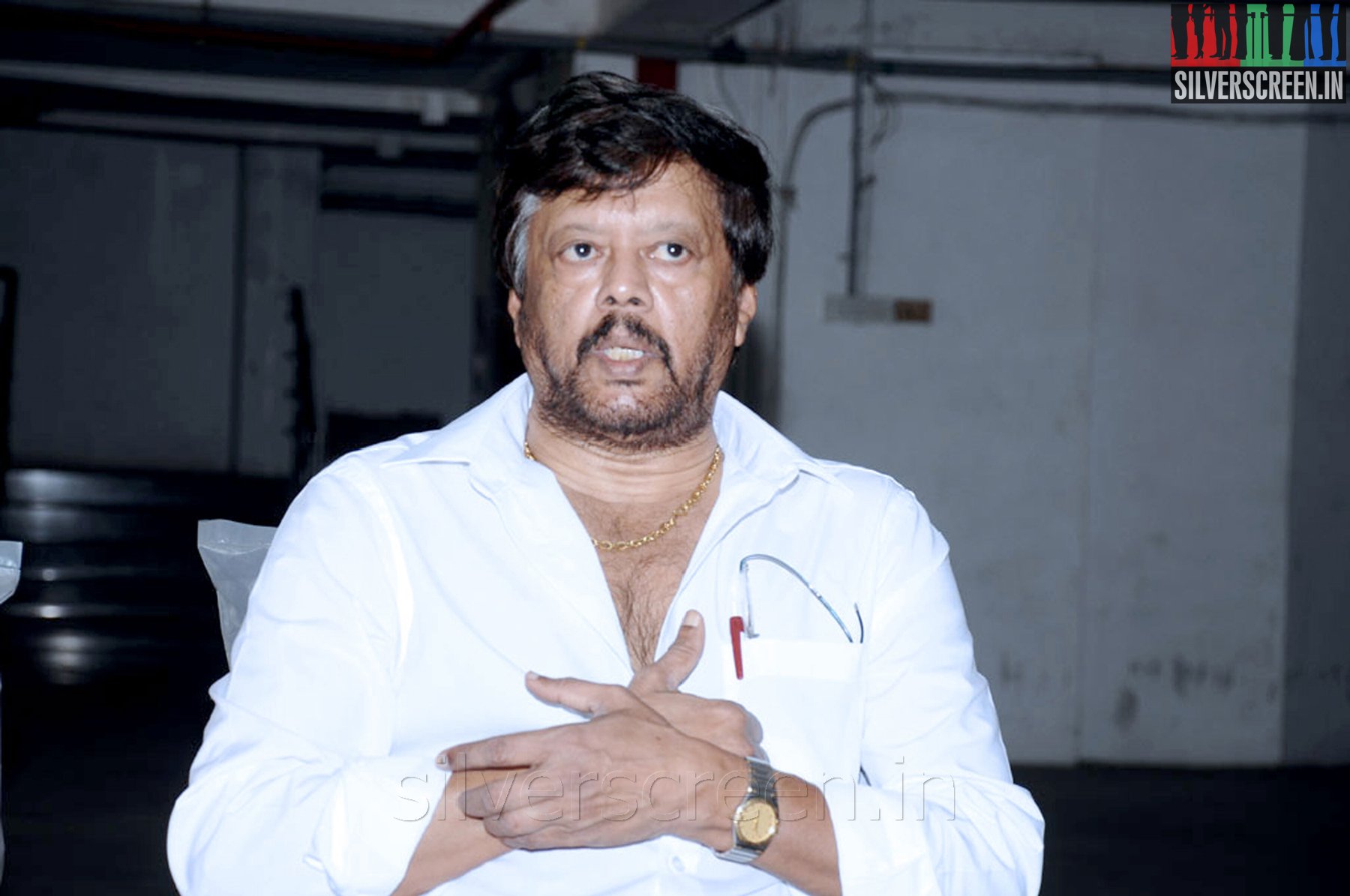Chinmayi Sripada is no stranger to online abuse. But the kind she’s been receiving since she became the unofficial mascot of the #MeToo movement, especially in the field of music, dance, theatre and cinema in the South, has hit a new low. The first few days, she shared the stories of those who had been harassed but wanted to stay anonymous. But, after she named her harasser – National Award winning lyricist and celebrated poet Vairamuthu – a new surge of misplaced Tamil pride saw her being attacked for her community, gender and for speaking up. But, she’s held her own; for in real life, she’s faced far greater demons to reach where she has. And despite the number of vicious tweets that come her way everyday, there are also the pleasanter ones that speak of her phenomenal professional growth: the unending appreciation for her songs in 96, and her hits in the Telugu films Chi La Sow and Geeta Govindam.
*****
A couple of years before Kannathil Muthamittal released, a teenaged Chinmayi Sripaada and her mother sat in their rented house in Chennai, all set for a daydreaming date. On the agenda was just one thing. How would it be to have Rs 50 in spare cash? How would it be to spend it without a care in the world? And, what could they buy with it?
Not the ideal situation for a child born of parents from well-to-do backgrounds, but after Chinmayi’s mother Padmhasini was abandoned by and later divorced from her father, Chinmayi got used to a life where stretching a rupee was the norm, and where it was commonplace to graciously accept help from a generous periyamma (aunt) and grandfather. “We knew where our next meal would come from, but were never sure what would happen the next week. So, I was born to parents who were rich, but grew up in poverty.”
This was also why Chinmayi, who dropped out of school after Class 10, took up various jobs. The focus was only on two things. Singing, but also ensuring the pressure cooker at home whistled too. Helping her in this was her proficiency in languages. The polyglot in Chinmayi took root years ago, in Mumbai, where she lived the first couple of years of her life. The first language she spoke was Marathi, and once she moved to Chennai, she studied in Children’s Garden School, where Telugu was the second language. Then, she moved to Hindu Senior Secondary School, where she learnt Hindi and Sanskrit and then Tamizh too. In between, she picked up the equivalent of a degree in German from Goethe Institut, Max Mueller Bhavan. And so, six languages were a part of her ecosystem even before she was 15; today, she’s added French to her repertoire, but has forgotten Marathi along the way.
The best part was that her mother never let her know what she was doing was special. “I realised this was an art only when I gave my first interview for the position of German translator, and was told it was difficult to believe I was not German,” recalls Chinmayi. The singer-entrepreneur-voiceover artiste believes everything in life happened for a reason, and with her future in mind. “It was like everything was a piece on the chess board, and was being moved by someone. The languages helped with my translation work, which I started for financial security, and my company Blue Elephant; the knowledge of Carnatic music got me a job at Sify, where I got interested in website building, management and blogging, all of which would come in useful later,” she says.
In the initial days of Blue Elephant, Chinmayi was the only employee. She worked 18 hours a day, handling everyday deadlines in translation, and recorded during breaks. Chinmayi the brand was slowly being built. Soon, she started hiring native speakers of a language, and today, she has over 3,000 consultant translators across the spectrum of languages, globally. Translation was a great learning tool, too. “I’ve translated software manuals, and patents in chemical engineering and in the automobile sector…I like that part of my life,” says the singer who translated the Tamil film Autograph for a film festival in Germany and whose company did the French translation of Vinnaithaandi Varuvaaya. Even today, when she’s in the mood, she translates. After all, it helped her buy her first asset – a gold earring.
Whatever she read during the process of translation stayed with Chinmayi. Sometime in 2013, she decided to write the Civil Services exam, and prepared hard for it. She attributes her interest in a range of disparate fields – from tech and taxes to solar power and environment — to this. Taxes are a pet topic. “I bleed both ways; I pay as a consumer and service provider. I absorb GST as a singer too, because not many production houses are willing to pay GST. If I refuse to take on that burden, I’ll lose out on opportunities. As for the environment, it’s something I’ve always done, live as gently as possible. Growing up, none of us was so woke, but the reading during the civils was a wonderful introduction to another world.”
In a way, the academic choices Padmhasini made were meant to allow Chinmayi to flourish in singing, something her mother, also her guru, knew she was good at. “My childhood was about unconventional educational choices. I escaped compartmentalisation. My mother did not see the logic of putting me through the grind in subjects that might not be beneficial. She trained me in everything that would today come under the umbrella of liberal arts.”
Now, while Padmhasini is proud about Chinmayi’s career graph, she believes a guru should not praise her ward. She’s also a trifle disappointed her daughter did not pursue classical music, but Chinmayi says that she does not have the time or inclination to do so now.
*****
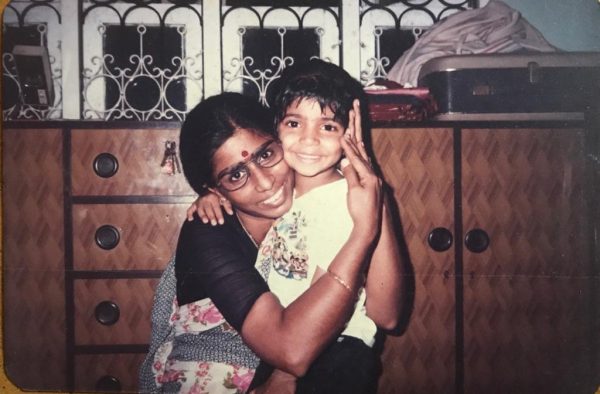
Looking back, Chinmayi is grateful about how far she and her mother have travelled. “Till my late 20s, most decisions I took were driven by the necessity to pay my bills. And, despite being a celebrity, I had not found financial freedom. Everyone thought singers were getting paid in lakhs, but that was not the case. I entered the industry at a time when it had become rare to see the name of a South Indian singer against a hit song. Singers from Mumbai always got paid many times more. That’s still not changed. I was paid Rs 1,500 for ‘Oru Deivam Thandha Poove’, a huge sum for a newcomer. Then, you could buy one ground on ECR for Rs 10,000 or rent a 1,500 sq ft apartment for Rs 5,000. Today, I am particular about charging what I’m entitled to for stage shows. I sometimes record for free, because that’s a passion. I give myself another five years to be financially secure,” she says.
Earlier this year, Chinmayi compiled a Twitter thread of her songs that everyone presumed had been sung by someone else. “A common question I get asked it, ‘Oh did you sing this song? We could not recognise the voice!’ I look at it as a compliment. I am able to sing across various tonalities, and can recreate that when singing live too. That’s a gift, I guess. I escape being labeled. Many tend to enter a comfort zone and we need composers to nudge us out of that. Rahman Sir manages to do that, leaving you amazed that you sang something so different. I am happy my voice navigates those new spaces. As an artiste, I’ve a deep admiration for singers who can rock every genre. Asha Bhonsle, LR Eswari, S Janaki… Once, during a show in Australia, Janaki amma sang a song where she sounded like a man, woman and child.”
Validation comes from unexpected quarters too. After a retro Hindi concert, Brahmanand S Siingh, who has extensively documented RD Burman in his feature-length documentary, told her how much he enjoyed the show. Years later, he would call her to sing for his film, and again mention the concert.
*****
Sometimes, Chinmayi takes up issues that have to do with finance too. She spoke against demonetisation seeing how the industry bled. “Everyone was suffering and there was no point blaming each other. There are only a few companies that pay into your account and give you the TDS certificate. Very few have the quantum of work to justify the existence of such a system. I will follow the rules, but have the right to protest too. Dubbing is one area where everything works smoothly. The South has some catching up to do with Mumbai. They have been dealing with this for a longer time and their systems are in place.”
Chinmayi is no stranger to controversy, and her tweets on finance elicited threatening calls too. As have her other posts. She kept receiving rape threats over phone and vicious phishing mails till February this year. Despite her steady rise as a singer with chartbusters across the board with various composers, Chinmayi was tempted to quit in between, when she was pulled down, her talent questioned. “However confident you are, constant scrutiny can make you doubt yourself. I’m glad I outgrew that phase. But, that also helped me decide that music is love, but the money would come from varied businesses. Which is when I took a call to work only with co-singers who don’t make me feel terrible.”
This was around the time the Vairamuthu incident took place. As a girl still finding her foot in the industry, Chinmayi did what she could do best. Avoided being alone with him anywhere; this when she was good friends with his son Madhan Karky. Yes, she invited him to her wedding, because she did not want anyone wondering why he was not. “In fact, many a time I’ve tried to look extra happy when he was around, simply because I wanted to let him know I was not afraid of him. Now, that’s being questioned, but that was my way to survive.”
Over the years, Chinmayi has been subjected to massive attacks on social media. After the bile being spewed over #MeToo, the many versions of Suchi Leaks pale in comparison. Suchitra and Chinmayi were colleagues at Sify. “I never understood what was happening.” But, that anger has reduced, even left her system, after Karthik Kumar, Suchitra’s former spouse, recently tweeted in support of Chinmayi. “These claims were totally without credence and expressed by a person when she wasn’t in full mental health. I stand proof of that and it is an explanation Suchi had tendered through the press as well,” he wrote. That was like a huge load off Chinmayi’s chest. For the past year, she has often cried at the injustice of it all. “I hope people now don’t insist that I had four abortions in 2014 and that I slept around. I won’t exaggerate, but there were days when, with all my heart, I never wanted to see the next day. That phase also showed me how cruel some could be. How do people have it in them to ask someone to end their life? Or, ask a woman her rate for a night? I do believe I degraded myself with all that anger. But, I’ve moved on now. That explanation, though delayed, was what my heart needed. But, I’ll give anything to find out what happened and why.”
*****
Happiness entered Chinmayi’s life post marriage to actor-filmmaker Rahul Ravindran. “Usually, they say that if you have a difficult childhood, you choose a similar life as an adult. Luckily, I chose differently. I learnt to breathe after marriage, to not be judged, to be myself.” Rahul and Chinmayi are each other’s support system; he’s been her rock through MeToo too. Many on social media have been pleasantly surprised by Rahul’s sensitive posts and the couple goals the duo has set.
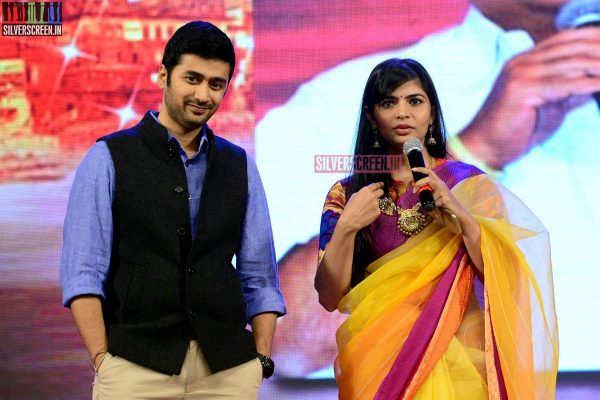
Over the years, despite the bad experience with Vairamuthu, Chinmayi maintains the industry has been a safe space for her. “No person has made me feel uncomfortable. When I was 20, I would make my way from Tiruvanmiyur to Kodambakkam and Saligramam on my own, even after midnight. If it got too late, I would sleep at the studio and leave early in the morning. Saamidurai anna, Rahman Sir’s Man Friday, has accompanied me home on his bike to ensure I was safe. And, we’ve always followed certain systems. I normally don’t accept too many invites to sing at VIP weddings. Event organisers know this and scrutinise what’s coming my way.”
It was the same industry that held her tight after Suchi Leaks. “No one called or tweeted support. Instead, they gave me work. They kept me busy so I could not focus on anything but my voice. I recorded three songs a day. 96 was recorded then. It was such a wonderful, silent way of showing support.”
*****
Chinmayi is fond of the written word. Her blog, WhatToNameIt, is meant for longform. She writes analytical pieces there, and takes her time to blog. Be it Sabarimala, Jallikattu agitation, solar energy or rainwater harvesting units, she reads up, speaks to experts and then writes. How comfortable is she with the limited characters Twitter provides? “Across the board, everything has moved on to Twitter, so I moved too. From a time when I devoured more than seven papers a day during my civils, I now get news on Twitter. But, I do see that it’s more reactionary than well-reported. I miss the investigative reporting of newspapers. That said, Twitter has allowed a lot of direct interaction with fans, and flak too, but that’s part of the game. Between the extreme right and left lies fact. I like to seek that truth. I like to write informed pieces, and I’m always happy to stand corrected.”
Chinmayi has been a judge on many reality shows. Does she ever wonder if one such show would have catapulted her to fame had she started off now? “I doubt it. I’d probably have made my debut on a YouTube channel. There are too many reality shows now, and I don’t see the winners doing very well. The pressure kills them as artistes. Earlier, there were rounds to prove their versatility in singing; now, it’s about packaging. That said, I deeply admire what Sathyaprakash is turning into. He has a solid background in classical music, and I think he will have a good shelf life. A classical base is important, before and after you enter the field. Raaja sir always says that we are happy to earn from singing, but unwilling to spend time to learn that skill. Many in my generation entered without any idea of classical music or playback, but equipped themselves along the way.”
Of late, some of Chinmayi’s best hits have been with Govind Vasantha (96), Sam CS, Kannan and, of course, her mentor Rahman. But, she has to talk of Prem Kumar’s 96, a movie where she sang and lent her voice for Trisha. “It was a rare chance to sing without too much orchestration, where the voice takes centrestage. Only a very secure composer can do that.” Ghibran has given her gems such as ‘Sara Sara Saara Kaathu’ and ‘Entaara Entaara’. He was the first from her fraternity to back her during the #MeToo movement. On October 10, he tweeted, “@Chinmayi Respect ! May God be with you….Actually thank you ! #metoo”
Chinmayi remembers Harris Jayaraj fondly for making her sound ‘sweet’ in songs such as ‘Idhayathai Edho Ondru’ in Yennai Arindhaal. And Sam CS, she says, recently gave her back-to-back songs across tonalities. Rahman sir, for her, is beyond comment.
After all these years, she has memories of her first meeting with Ilaiyaraaja – you don’t often forget bursting into tears in front of a maestro. “I was not yet 20, and was overwhelmed by the moment. He asked: ‘Naan enna paeya boothama? edhukku bayam [Am I a spirit or ghost? Why are you scared?]’ Later, I went with his group for a concert to Italy; my first solo foreign trip. His daughter Bhavatharini and I shared a room and (late) Jeeva aunty mothered us and took us shopping. Raja sir taught me to sing with my eyes open. He’s an avid photographer and, of late, singers get to see a lighter side of him.”
Chinmayi has been in the happy position of singing with both the old and new order. “I think it is the best of both worlds. I work with Jerry Amaldev in Malayalam, and Ousepachhan sir. Jerry sir is 70. He likes his singers to rehearse the previous day and records duets together. That’s rare. Vijay Yesudas and I rehearsed and did a couple of trial runs the next day before the final recording. I won’t choose one system over the other. It’s not a competition. Both the new and old generation bring something exclusive to the table.”
The ‘Kalavarame’ song in Tamizh Padam 2 is a happy memory. She breaks into “blublummmm” for the underwater sequence. There’s a story to that only known to close family friends. “I love breaking into gibberish. I speak that way at home sometimes. That’s how I converse with our dogs Uppiliappan, Jillu and Potato. I never spoke this way in childhood. I think I feel freer now.”
*****
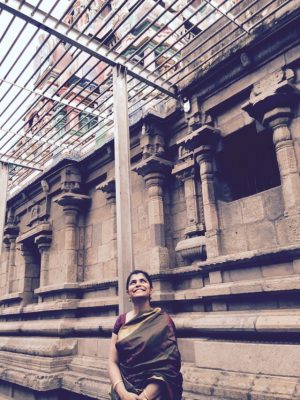
Considering her background, Chinmayi has come a long way with her repertoire of film songs. “I had watched a grand total of three films – Anjali, Bombay and Puthiya Mugam – before I entered the industry. I knew of S Janaki but not P Susheela. I did not know the difference between the voices of P Jayachandran and KJ Yesudas. Once, while waiting in Rahman sir’s office, ‘Thenkizhakku Seemayile’ was playing on television. I looked up to Saamidurai anna and wondered who had composed such a lovely song. I was that bad! Super Singer was my repertoire-building exercise. Being an RJ also helped. In school I sang mostly Hindi songs. I think the Tamil song I knew was ‘Kaatril’ from Johnny, and some ‘competition songs’ rich with brigas. Several years after I entered the industry, I learnt a Susheela amma song, and fell into the rabbit hole. Some songs are ear worms. ‘Bhoomi’ from Chekka Chivantha Vaanam and ‘Aaluma Doluma‘ are favourites. After 96, I’ve been singing the charanam of ‘Thendral Vandhu’. It’s something else. When you revisit Raaja sir’s songs, you learn so much more about how he created something so lovely.”
Ramesh Vinayagam is another fond influence — she worked with him in Nala Damayanti when she was 18 or 19. “He’s part of my family, and will put himself on line for me. Sadly, he never got his due as composer.’
A couple of years ago, Chinamyi was the rage in Marathi films, after her song in Nagraj Manjule’s blockbuster Sairat did phenomenally well. ‘Sairat Zaala Ji’ clocked in about 51 million views on YouTube. “I knew it was an Ajay-Atul number and would be big, but I did not expect it to do so well. That was a high in my career. Not that it got me more songs, but it’s a brilliant song to add to your bio, something you will always be proud about. That kind of song where you wonder, ‘Did I sing this?’”
Chinmayi still recalls the day she recorded the song. The composers wanted a specific rural dialect, and she learnt it. “The studio staff was laughing, and I asked them if my pronunciation was bad. They were smiling because it was good. Sometimes, you get the validation at the studio, and know it will do well.”
There’s another song from her coming up in Marathi, the soaring ‘O Jaana…’
*****
For some years now, beginning with Sillunu Oru Kadhal, where she lent her voice for Bhumika Chawla, Chinmayi has been a popular voice-over artiste. “I thought I had a horrible talking voice. Those days, honeyed voices were the norm. I went for the voice test because an engineer from Rahman sir’s office told me to. And then, there were more opportunities to speak ‘normally’.”
Chinmayi was called when there was an extended talking part for a heroine; that was how she lent life to Trisha’s Jessie in Vinnaithaandi Varuvaaa and for Samantha in its Telugu version Ye Maya Chesave.
For 96, where she became Janu, she had to go through a range of emotions — be playful, express regret and rage at life, show quiet acceptance and heartbreaking grief. “It was a film that took more than two full days to dub. It’s not often that you get author-backed roles for women with so many dialogues.” She took as many days to dub for Ruhani Sharma for her husband Rahul’s directorial debut Chi La Sow.
Chinmayi’s eponymous YouTube channel features her pet projects, and latest passion, which is Korean make-up. She clicked on a YouTube video last year when she was resting after a fracture, and got hooked. That also got the businesswoman in her thinking. She’s to shortly launch a brand – Isle Of Skin – where she will curate and retail beauty products. One of the first products designed was a jade roller created by artisans and made with a genuine gemstone.
Along with make-up, she’s also picked up design tips along the way. Helping her look her best is Hyderabad-based stylist Srimukhi. She might not wear cotton or handloom for red carpet events, but Chinmayi’s heart beats for handloom. She recently did a handloom trail video and put it up on social media. “I would like to document different handloom traditions sometime in the future,’ she says.
*****
While we speak of many things, the one topmost on Chinmayi’s mind now is what the MeToo movement has achieved. While it traumatised her to read survivor accounts and share them while protecting their anonymity, the slut-shaming had made things worse. “What people don’t realise is that many women can’t take legal action. By naming and speaking about their harassment, at least their pent-up rage is reduced.”
Recommended
The past couple of days have been difficult. She was sleepless after a press meet that was almost a verbal lynch mob and an interview with a popular journalist who did not hesitate attacking her. “Yet, I feel light now. If people can begin the cleaning of predators from their home, things will change. I did not expect support, but when it came, I received it gratefully. I knew I was walking into this alone, but CS Amudhan, Ghibran, Siddharth, Gnanavel Raja, Samantha, singer Sunitha Sarathy and some others called and tweeted their support.” She also derived strength from the protective ring an online sisterhood threw around her.
And now, Chinmayi says that she sees a definite shift in public perception. “If they earlier thought this was a media trial, with the increasing number of stories coming out, they understand that the rot is deep. They’ve started listening. The takeaway is ultimately positive. All the abuse is worth it if there’s an attitudinal change.”
*****
The Chinmayi Sripada interview is a Silverscreen exclusive.
